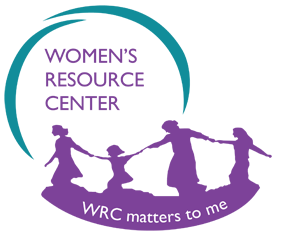Sexual Violence Services
Our Sexual Violence Services at the Women’s Resource Center offer 24/7 crisis intervention, advocacy, and support for all individuals. As Cleveland County’s only Attorney General-certified program, we’re dedicated to creating a safe, trauma-informed environment where you can begin your healing journey. Our compassionate team helps clients reclaim their sense of dignity and choice every step of the way—because you deserve support, hope, and a future free from violence.
WRC’s Sexual Violence Services
24/7 Sexual Violence Crisis Line
Our 24/7 Sexual Violence Crisis Line offers immediate, confidential support whenever you need it. To speak with an advocate call (405) 701-5660.
Advocacy
Our Rape Response Advocates are trained experts who are ready -day or night- to provide confidential crisis intervention, emotional support, and resources.
Medical Forensic Exam
A Medical Forensic Exam is a specialized, confidential medical evaluation performed by a SANE after a sexual assault. It checks your well-being, collects evidence, and respects your choice at every step.
Follow-Up
After your exam, we’ll check in to see how you’re doing, share additional resources, and offer continued emotional support. If you choose to meet with and advocate again, we’re here to help you navigate your healing journey, every step of the way.
Court Advocacy
We can guide you through protective orders and serve as your support person in court. We’re here to champion your safety and dignity every step of the way.
What is Sexual Assault?
At the Women’s Resource Center, we define sexual assault as any sexual act that occurs without a person’s freely given and informed consent. This can include physical force, threats, pressure, manipulation, or taking advantage of someone who cannot consent due to age, incapacitation, or other factors. Fundamentally, sexual assault is about violating someone’s autonomy and control over their own body.
Community-Based Rape Crisis Center
One of the most unique aspects of our agency is our Community-Based Rape Crisis Center. Unlike many places where survivors must go to a hospital for a forensic exam, we offer a dedicated, trauma-informed space where trained professionals perform these exams. We welcome and serve individuals 13 and older for sexual assault forensic exams. This environment is designed to be more comforting and less clinical, helping survivors feel safer and more in control.
Why is this important?
- Survivor-Centered Experience: Hospitals can be overwhelming, especially after a traumatic event. Our crisis center reduces the stress associated with crowded, clinical settings.
- 24/7 Confidential Support: We provide round-the-clock services, ensuring that whenever someone needs help, we’re here.
- Privacy & Comfort: Our center is designed with warmth and safety in mind—offering confidential rooms and supportive advocates.
What is a Forensic Medical Exam?
A Forensic Medical Exam (sometimes called a “rape exam”) is a specialized exam performed by a trained healthcare professional after a sexual assault. Its primary purposes are:
- Evidence Collection: Safely collecting forensic evidence that could be used if the survivor chooses to pursue legal action.
- Medical Care: Identifying and treating injuries or addressing health concerns.
At the WRC, these exams are conducted by Sexual Assault Nurse Examiners (SANEs)—registered nurses with advanced training in sexual assault evidence collection, trauma-informed care, and forensic procedures. Their expertise ensures that survivors receive both compassionate medical attention and thorough, accurate evidence collection.
Advocates: Here For You Every Step of the Way
During a forensic exam at our Rape Crisis Center, you won’t be alone. In addition to the SANE nurse, one of our trained advocates will also be present to offer:
- Emotional Support: Advocates provide a calm, understanding presence during what can be a very overwhelming time.
- Information & Guidance: They can help answer questions about the process, your rights, and available resources.
- Follow-Up & Referrals: After the exam, advocates continue to check in with you, making referrals to any services you may need—whether within our own agency or through other community partners (e.g., counseling, legal assistance, housing support).
Having both a SANE nurse and an advocate in the room ensures that your physical, emotional, and practical needs are all addressed. This two-person team is there to help you feel supported and informed, every step of the way.
Your Choices, Your Control.
At the Women’s Resource Center, every part of the exam is optional. Our philosophy is to give individuals a space where they can begin reclaiming control over their bodies and their lives. From deciding which steps of the exam to complete to determining whether or not to report the assault to law enforcement, the choice belongs entirely to the individual. It is also important to know…
No Mandatory Police Report
We will never force anyone to involve law enforcement (as long as the client is 18+). Reporting is the clients choice.
No Cost
Our forensic exams are 100% free.
Comprehensive Support
Beyond medical care, individuals can access advocacy, crisis counseling, and referrals to community resources—all under one roof.


